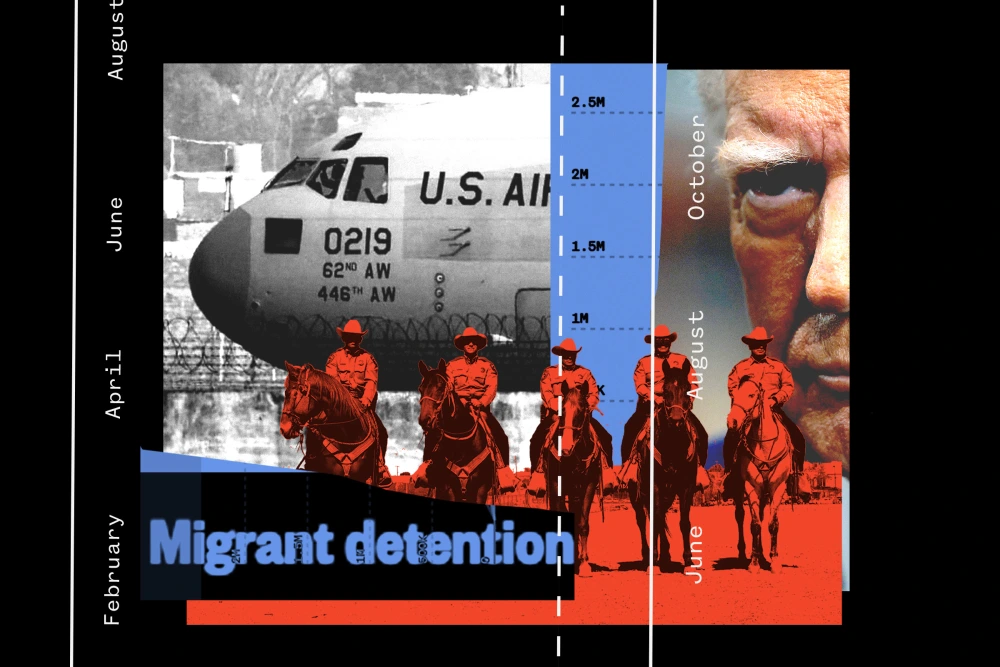President Donald Trump’s second term has brought major changes to U.S. immigration enforcement. Promising the largest mass deportation effort in the country’s history, his administration has increased pressure on undocumented migrants, resulting in stricter border controls and higher arrest rates across the country.
According to NBC News, which is tracking immigration enforcement data from Immigration and Customs Enforcement (ICE) and U.S. Customs and Border Protection (CBP), unauthorized border crossings have significantly decreased since Trump returned to office. In contrast, arrests by ICE have doubled, and the number of migrants being held in detention centers is now the highest it has ever been.
While the administration continues to push for widespread deportations, official figures on deportation totals are not frequently released. However, data shared with NBC shows ICE deported about 11,000 migrants in February, more than 12,300 in March, and around 17,200 in April. These figures suggest a growing momentum in removals, although many of those deported did not have criminal records.
This contradicts the administration’s stated policy of focusing on deporting individuals with criminal backgrounds. ICE data from February indicates that about half of those deported had no criminal history, and more than 50% of current detainees are also without criminal charges or convictions.
Are undocumented immigrants with no criminal records being deported?
Yes. ICE data reveals that many of those being detained and deported have no criminal convictions or charges.
ICE also reported to Congress that as of July last year, there were about 435,000 undocumented immigrants with criminal records who were not in custody. However, it remains unclear how many of these individuals have since been arrested or deported.
At the same time, CBP data shows unauthorized southern border crossings have sharply declined, a key objective of Trump’s immigration strategy. The administration attributes this drop to stronger enforcement and deterrent measures at the border.
While these numbers mark a significant shift in immigration policy, they have raised concerns among human rights advocates who argue that detaining and deporting individuals without criminal backgrounds goes against due process and humanitarian principles.
As the administration moves forward with its immigration agenda, updates on enforcement trends will continue to shape national debate and the lives of millions of undocumented migrants in the U.S.

